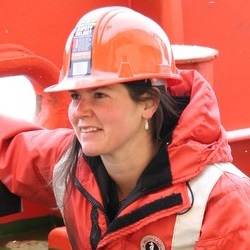Brook Nunn is the director of the Environmental Proteomics Center at the University of Washington and is also on the Steering Committee for the NASA Network for Life Detection (NFOLD) Research Coordination Network
I have a wide range or specialties in the life sciences and in chemistry. While my training is in analytical chemistry, I have focused my recent research on using and developing state-of-the-art tandem mass spectrometry technology to analyze and decipher how organisms or communities of organisms, such as a microbiome, adapt to a changing environment. I collaborate with a range of researchers allowing me to explore unique ecosystems such as coral, hydrothermal vents, the open ocean, and microbiome.
I recently was given the honor of being on the NASA steering committee to help decide how to detect life on other planetary bodies. My area of research focusses on peptide and amino acid based life forms.
I have expertise in crime scene investigations and forensic chemistry. I have developed a curriculum that teaches students how to critically think and use forensic chemistry to provide court-accepted facts to solve crimes.
My research interests include
- Understanding how different organisms adapt to their unique surroundings by examining their protein expression.
- Biogeochemical recycling of organic matter, specifically proteins, in the marine water column and in sediments.
- Understanding the chemical interactions between bacteria and particles in the ocean.
- Examining why proteins are preserved in sediments for long periods of time.
Selected Publications
Mikan, M. P., Harvey, H. R., Timmins-Schiffman, E., Riffle, M., May, D. H., Salter, I., … & Nunn, B. L. (2019). Metaproteomics reveal that rapid perturbations in organic matter prioritize functional restructuring over taxonomy in western Arctic Ocean microbiomes. The ISME journal, 1-14.
Glass, J., Blanchard, J., Ranjan, P., Kretz, C.B., Nunn, B.L., Johnson, A.M., McManus, J., and Stewart., F.J. (2019). Adaptations of Atribacteria to life in methane hydrates: hot traits for cold life.bioRxiv.
Junge, K., Cameron, K., and Nunn, B.L. (2019). Diversity of Psychrophilic Bacteria in Sea and Glacier Ice Environments—Insights Through Genomics, Metagenomics, and Proteomics Approaches. . In Microbial Diversity in the Genomic Era S. Das, and H.R. Dash, eds. (Academic Press), pp. 197-216.
Saito, M.A., Bertrand, E.M., Duffy, M.E., Gaylord, D.A., Held, N.A., Hervey, W.J., Hettich, R.L., Jagtap, P.D., Janech, M.G., Kinkade, D.B., et al. (2019). Progress and Challenges in Ocean Metaproteomics and Proposed Best Practices for Data Sharing. Journal of Proteome Research 18, 1461-1476.
Spencer, L.H., Horwith, M., Lowe, A.T., Venkataraman, Y.R., Timmins-Schiffman, E., Nunn, B.L., and Roberts, S.B. (2019). Pacific geoduck (Panopea generosa) resilience to natural pH variation. Comp Biochem Physiol Part D Genomics Proteomics 30, 91-101.
Szeinbaum, N., Nunn, B.L., Cavazos, A.R., Crowe, S.A., Stewart, F.J., DiChristina, T.J., Reinhard, C.T., and Glass, J.B. (2019). Expression of extracellular multiheme cytochromes discovered in a betaproteobacterium during Mn (III) reduction. bioRxiv.
Tisthammer, K.H., Nunn, B.L., F.O., S., Timmins-Schiffman, E., and Richmond, R.H. (2019). Physiological and Molecular Responses Suggest Local Adaptation of the Lobe Coral Porites lobata to the Nearshore Environment. biorRxiv.
Venkataraman, Y.R., Timmins-Schiffman, E., Horwith, M.J., Lowe, A.T., Nunn, B., Vadopalas, B., Spencer, L.H., and Roberts, S.B. (2019). Characterization of Pacific oyster Crassostrea gigas proteomic response to natural environmental differences. Mar Ecol Prog Ser 610, 65-81.

